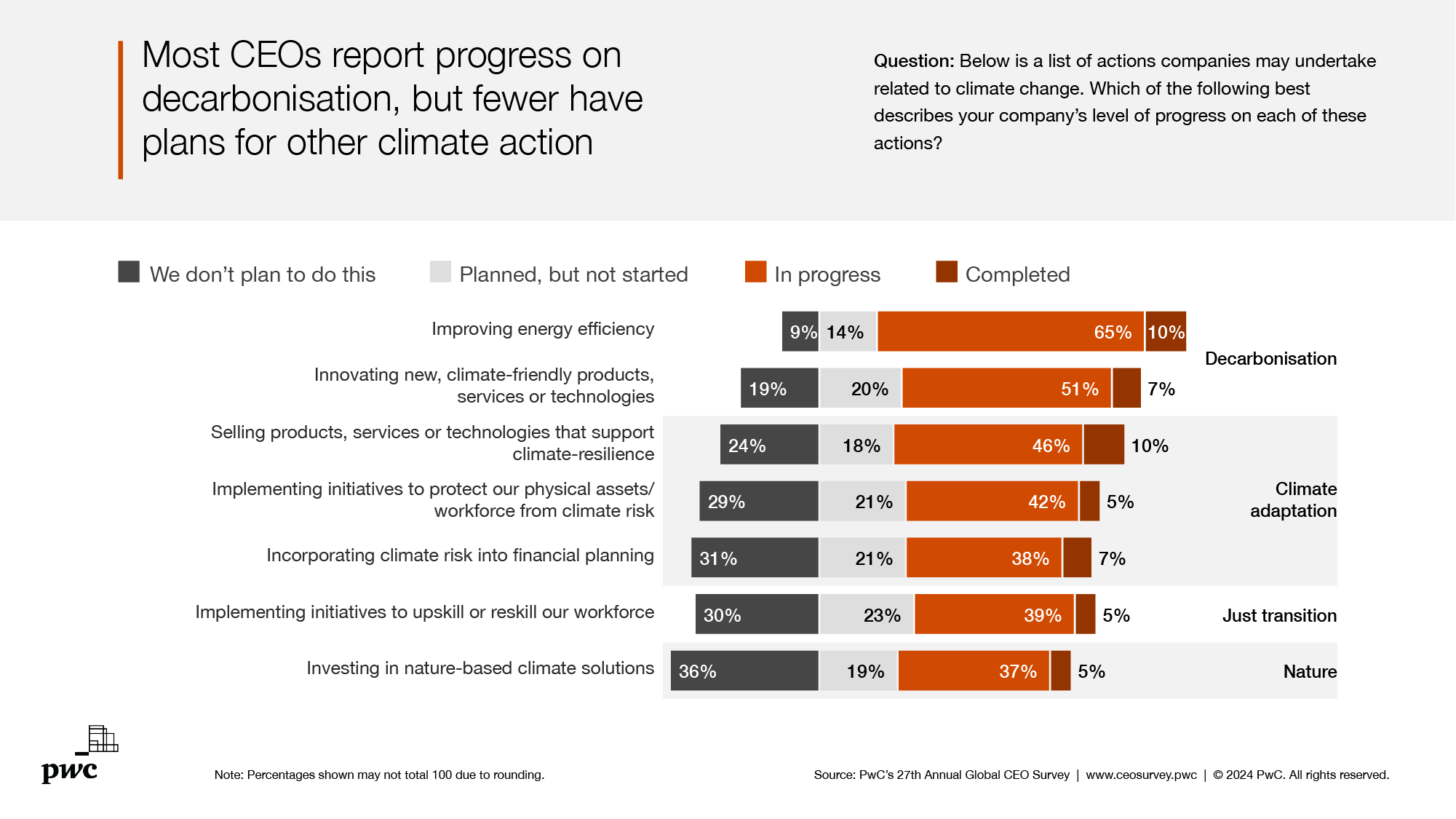CEOs not going far enough to protect their business from climate crisis

Almost half of CEOs fear their business may no longer exist in 10 years, and many are accepting lower returns for climate-friendly investments – but action beyond decarbonisation is still lacking.
A PwC survey of more than 4,700 global CEOs has shown that 45% are not confident their company will survive the next 10 years if it stays on its current path. CEOs acknowledge the looming existential threats presented by technology and climate change, but are failing to connect the dots between them and to truly reinvent their business models.
With 66% of new Chief Sustainability Officers reporting to their CEOs, there is an opportunity for CSOs to play a crucial role in this necessary business transformation, decoding long-term trends and promoting change at the highest governance levels.
Lower returns on climate-friendly investments
Almost a third (30%) of CEOs believe climate change the way they capture and deliver value over the next three years, up from 22% last year, and they are taking action to mitigate risks: three-quarters of them have completed or are in the process of improving energy efficiency, and about half are innovating with new climate-friendly technologies.
CEOs are even willing to accept lower returns for climate investments: 41% say their companies have set lower hurdle rates for these than for other investments, with the majority lowering these rates by 2-4 percentage points.
Tunnel vision could threaten business survival
But too few are tackling climate risks beyond energy efficiency and decarbonisation. For example, fewer than half of CEOs have integrated climate risk into financial planning, and almost a third (31%) have no plans to do so. Similarly, less than half are implementing initiatives to upskill or reskill their workforce (a necessary step to ensure a just transition) or investing in nature-based climate solutions, suggesting that most still do not recognise their company’s dependence on nature.

PwC explains that CEOs should adopt a long-term vision and understand how megatrends interconnect. “Consider, for example, how technology and climate change might interact with regulation and customer preferences to compel a wholesale reconfiguration of our entire industrial system (...) If you’re running an organisation or supervising its management, the task at hand is to envision the future ecosystem in which you intend to operate.”
Read also: What does good sustainability governance look like?
The consultancy also recommends partnering with Chief Financial Officers (CFOs) on climate strategy, since CFOs are traditionally more focused on long-term performance and can use their forecasting, risk management and resource allocation tools to bring sustainability into core business strategy.
The 27th Annual Global CEO Survey was released yesterday during the World Economic Forum’s annual conference in Davos, and shows that almost all CEOs have taken some steps to change how they create value over the past five years, but more are concerned about the survival of their business now than last year.







Member discussion